Highlights:
- Access to food:
Although global food prices have declined from their peaks in 2022, heightened food insecurity amid elevated food prices remains a major concern across Southern Africa (Figure b & 1.3).
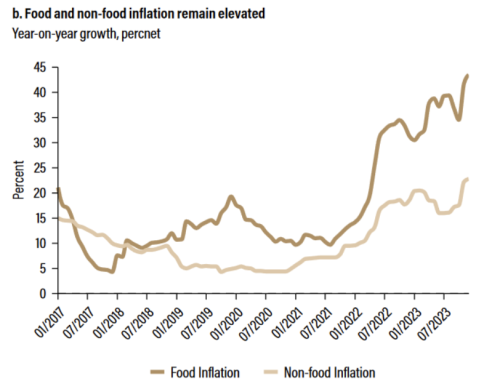

- Agricultural production/ food availability:
Groundnuts, tubers, and traditional cereals outperformed maize and soybean production in 2023. To keep per capita production stable given population growth, output for 2023 would have needed to exceed the average for the preceding five years by 6.6 percent (Figure 1.8).
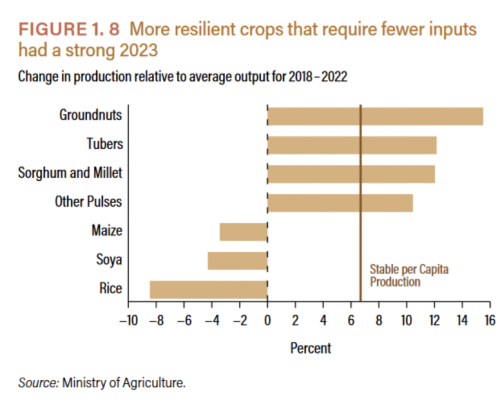
Malawi’s maize farmers face the quadruple challenge of low per capita production, sparse harvests in 2023, high prices, and high susceptibility to El Nino impacts (see Figure 1.9).
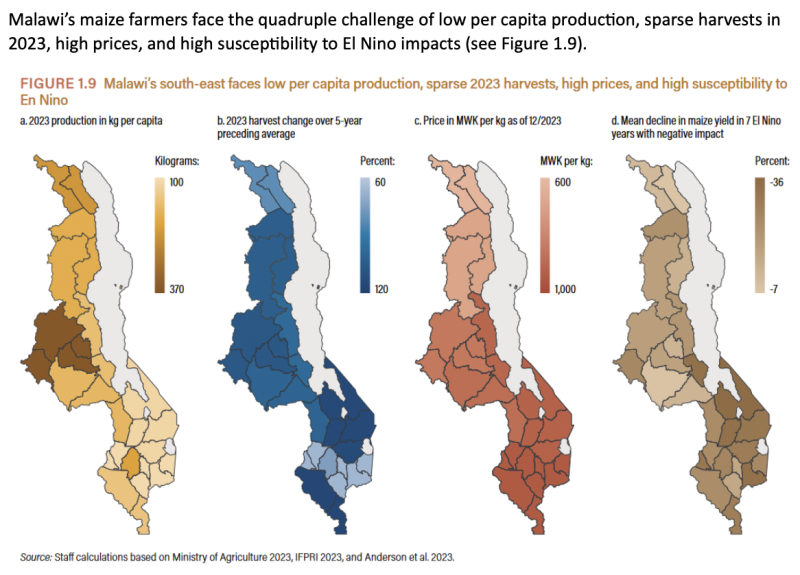
Due to weak harvests on their own land, many Malawians are turning to markets for food purchases earlier, driving prices up and resulting in escalating food insecurity. With low personal stocks, Malawians had to start buying maize from markets earlier after harvests than in recent years. Among the respondents of the Rapid Feedback Monitoring System (RFMS) survey of rural southern Malawians5, more than half bought their maize from the market in May (Figure 1.10).
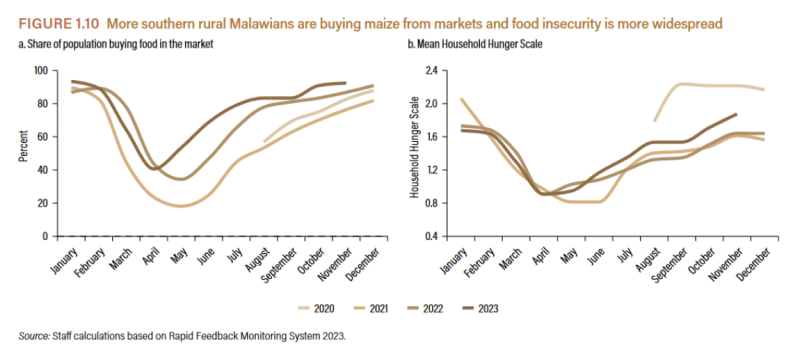
Livelihoods sources:
Ganyu, a term for casual labor in Malawi, is the main source of income, especially for vulnerable households, both pays less and has become scarcer, driving up poverty (figure 1.11).
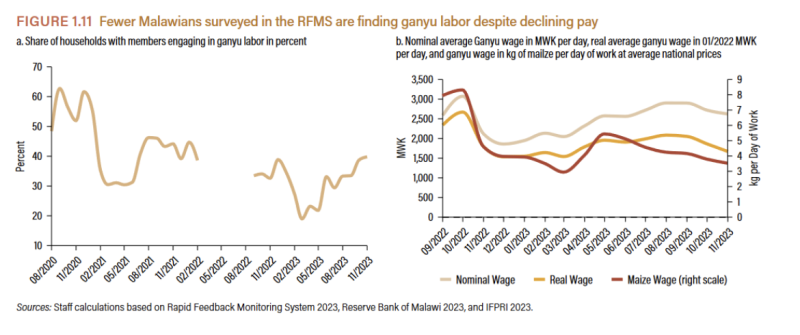
The share of Malawians working increased for the first time in nearly two years, driven primarily by an increased reliance on family farming.
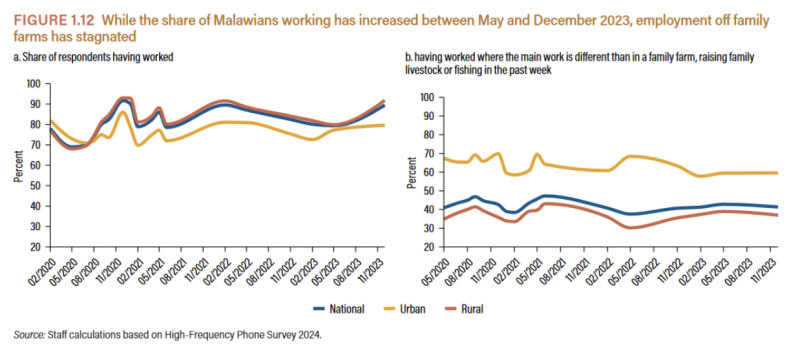
Policy priorities:
Bolstering macroeconomic stability: Ongoing macro-fiscal reforms need to be sustained and fully implemented, focusing on rebuilding foreign reserves, enforcing fiscal discipline, enhancing public financial management, improving debt management, and increasing flexibility in exchange rate management. The planned fiscal tightening and related fiscal governance reforms, and successful external debt restructuring will be integral to regaining debt sustainability.
ii) Creating the foundations for export-led growth: Key measures include stimulating growth of the agriculture sector by advancing with reforms of the AIP and commercialization initiatives, incentivizing exports by reducing non-tariff barriers, and supporting development of an efficient and transparent mining sector.
iii) Building resilience and protecting the poor: With the heightened risk of extreme weather events and food insecurity, it will be essential to move forward with the implementation of the expanded social cash transfer and climate-smart public works programs, as well as to strengthen the functioning of agricultural markets. Implementation of the Disaster Risk Management Bill will be key to enhance preparedness for future disasters and strengthen resilience.
| Year of publication | |
| Geographic coverage | Malawi |
| Originally published | 01 Mar 2024 |
| Related organisation(s) | World Bank |
| Knowledge service | Metadata | Global Food and Nutrition Security | Food security and food crises | Access to foodFood price crisisSafety net |
| Digital Europa Thesaurus (DET) | social protectioneconomic policypolicymakingfiscal policydisaster risk reductioneconomic analysisextreme weatheragricultural productioninflationagricultural tradeprice of agricultural produce |
